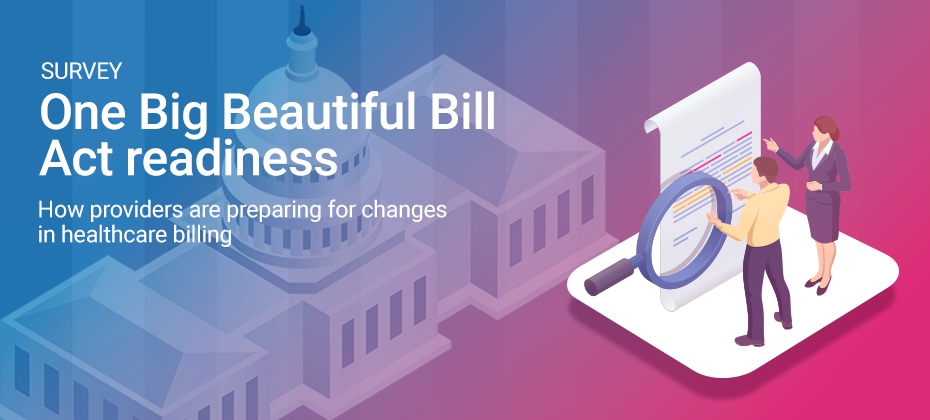The U.S. Department of Health and Human Services (DHHS) Office of Inspector General (OIG) recently released an updated Mid-Year Work Plan for fiscal year 2016.
The updated Work Plan summarizes new and ongoing reviews and activities that OIG plans to pursue in the current year and beyond. This edition of the Work Plan describes OIG audits and evaluations that are underway or planned, and certain ongoing legal and investigative initiatives.
Summaries of 9 new review activities to be awar of follow:
CMS’ Implementation of New Medicare Payment System for Clinical Diagnostic Laboratory Tests – Mandatory Review
We will assess CMS’s ongoing activities and progress toward implementing CMS’s new Medicare payment system for clinical diagnostic laboratory tests. CMS is required to replace its current system of determining payment rates for Medicare Part B clinical diagnostic laboratory tests with a new market-based approach that will use rates paid to laboratories by private payers (Protecting Access to Medicare Act of 2014, § 216). OIG is also required to conduct analyses of the implementation and effect of the new payment system
Intensity-Modulated Radiation Therapy
We will review Medicare outpatient payments for intensity-modulated radiation therapy (IMRT) to determine whether the payments were made in accordance with Federal requirements. IMRT is an advanced mode of high-precision radiotherapy that uses computer-controlled linear accelerators to deliver precise radiation doses to a malignant tumor or specific areas within the tumor. Prior OIG reviews have identified hospitals that have incorrectly billed for IMRT services. In addition, IMRT is provided in two treatment phases: planning and delivery. Certain services should not be billed when they are performed as part of developing an IMRT plan.
Medicare Home Health Fraud Indicators
We will describe the extent that potential indicators associated with home health fraud are present in home health billing for 2014 and 2015. We will analyze Medicare claims data to identify the prevalence of potential indicators of home health fraud. The Medicare home health benefit has long been recognized as a program area vulnerable to fraud, waste, and abuse. OIG has a wide portfolio of work involving home health fraud, waste, and abuse.
National Background Check Program for Long-Term-Care Employees
We will review the procedures implemented by participating States for long-term-care facilities or providers to conduct background checks on prospective employees and providers who would have direct access to patients and determine the costs of conducting background checks. We will determine the outcomes of the States’ programs and determine whether the checks led to any unintended consequences. This mandated work will be issued at the program’s conclusion as required, which is expected to be 2018 or later.
Outpatient Outlier Payments for Short-Stay Claims
We will determine the extent of potential Medicare savings if hospital outpatient stays were ineligible for an outlier payment. CMS makes an additional payment (an outlier payment) for hospital outpatient services when a hospital’s charges, adjusted to cost, exceed a fixed multiple of the normal Medicare payment (Social Security Act (SSA) § 1833(t)(5)). The purpose of the outlier payment is to ensure beneficiary access to services by having the Medicare program share in the financial loss incurred by a provider associated with individual, extraordinarily expensive cases. Prior OIG reports have concluded that a hospital’s high charges, unrelated to cost, lead to excessive inpatient outlier payments.
Skilled Nursing Facility Prospective Payment System Requirements
We will review compliance with the skilled nursing facility (SNF) prospective payment system requirement related to a 3-day qualifying inpatient hospital stay. Medicare requires a beneficiary to be an inpatient of a hospital for at least 3 consecutive days before being discharged from the hospital, in order to be eligible for SNF services (SSA § 1861(i)). If the beneficiary is subsequently admitted to a SNF, the beneficiary is required to be admitted either within 30 days after discharge from the hospital or within such time as it would be medically appropriate to begin an active course of treatment. Prior OIG reviews found that Medicare payments for SNF services were not compliant with the requirement of a 3-day inpatient hospital stay within 30 days of an SNF admission.
Potentially Avoidable Hospitalizations of Medicare and Medicaid Eligible Nursing Home Residents for Urinary Tract Infections
We will review nursing home records for residents hospitalized for urinary tract infections (UTI) to determine if the nursing homes provided services to prevent or detect UTIs in accordance with their care plans before they were hospitalized. A CMS-sponsored study identified UTIs as being associated with potentially avoidable hospitalizations and found that UTIs are generally preventable and manageable in the nursing home setting. UTIs acquired during the course of health and medical care could indicate poor quality of care. In a hospital setting, there are payment implications for hospital-acquired catheter-associated urinary tract infections. Nursing homes must develop and follow comprehensive care plans addressing each resident’s care needs, which includes urinary incontinence (42 CFR § 483.25(d)).
Physician-Administered Drugs for Dual Eligible Enrollees
We will determine whether Medicare requirements for processing physician-administered drug claims impact State Medicaid agencies’ ability to correctly invoice Medicaid drug rebates for dual eligible enrollees. Dual eligible describes individuals who are enrolled in both Medicare and Medicaid. States are required to collect rebates on physician-administered drugs. To collect these rebates, State agencies must submit to the manufacturers the National Drug Codes for all single-source drugs and for the top 20 multiple-source physician-administered drugs. For dual eligible enrollees, covered Medicare Part B prescription drugs received in a hospital outpatient setting (which include physician-administered drugs) require a copayment, which Medicaid is generally responsible for paying. If a State agency paid any portion of a drug claim to the provider, the State agency must then invoice the eligible drugs for rebate and the manufacturer would thus be liable for payment of the rebate.
State Medicaid Fraud Control Unit FY 2015 Annual Report
We will analyze the statistical information that was self-reported by the MFCUs for FY 2015, describing in the aggregate the outcomes of MFCU criminal and civil cases. We will identify common themes from onsite reviews of the 50 MFCUs that were published from FY 2011 through FY 2015. We will identify the potential costs and benefits of creating MFCUs in jurisdictions that currently do not have a Unit.
OIG’s mission is to protect the integrity of HHS programs, as well as the health and welfare of program beneficiaries. In fulfillment of this mission, we promote provider compliance, recommend program safeguards, and follow up on those recommendations …”
— Inspector General Daniel R. Levinson
The OIG Mid-Year Workplan can be reviewed here: https://oig.hhs.gov/reports-and-publications/archives/workplan/2016/WorkPlan_April%202016_Final.pdf


